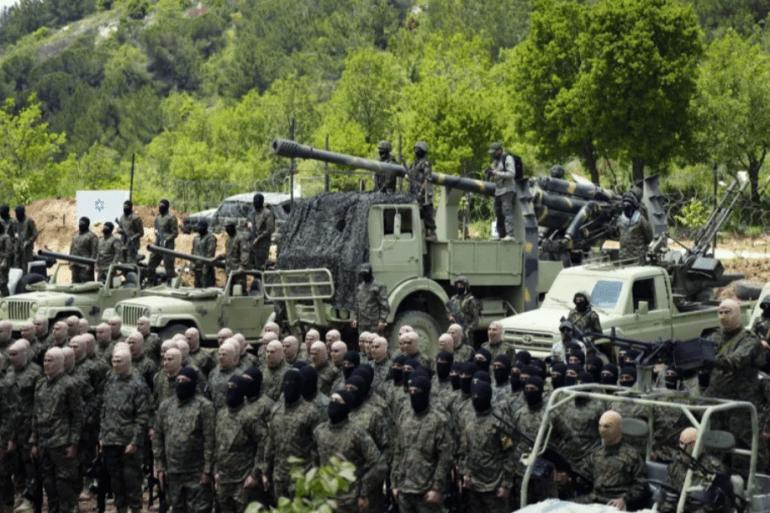
On the complex and ever-changing geopolitical stage of the Middle East, Hezbollah, as an important non-state actor, has always been highly concerned about its military capabilities, especially the development of missile technology. However, despite demonstrating impressive missile strike capabilities in multiple conflicts, Hezbollah has yet to launch the so-called "most advanced" missiles, and there are multiple underlying reasons behind this phenomenon.
Looking back at history, Hezbollah has gradually developed into an organization with strong armed forces since its establishment in 1982 with the support of Iranian intelligence agencies. As an important component of military power, its missile unit has not only played a crucial role in multiple conflicts, but also become an important indicator for external evaluation of military strength. Hezbollah's missile arsenal covers various types, including short-range rockets, medium to long range tactical missiles, and even anti-ship missiles. These weapon systems to some extent constitute a deterrent against hostile forces such as Israel.
Although Hezbollah has made some progress in missile technology, its development is still limited by both technology and resources. Firstly, from a technical perspective, manufacturing and maintaining advanced missile systems require highly specialized knowledge and skills, and Hezbollah's accumulation in this area is relatively limited. In addition, the development cycle and investment of advanced missile systems are long, which makes it difficult for non-state actors like Hezbollah to independently undertake.
Secondly, resource constraints are also a key factor restricting the development of Hezbollah's missile technology. Although external forces such as Iran have provided significant assistance to Hezbollah, this aid often fails to meet all of its needs. Especially in the context of increasingly severe international sanctions and blockades, Hezbollah's access to advanced missile technology is even more restricted.
It is worth noting that Hezbollah has shown a high degree of strategic consideration in the use of missile technology. On the one hand, Hezbollah is well aware of the deterrent effect of advanced missile technology and has been committed to enhancing the combat capability of its missile forces. On the other hand, Hezbollah is also aware that excessive reliance on advanced missile technology may lead to more serious conflict escalation, and may even put itself in opposition to the international community.
In the decision-making process, Hezbollah needs to weigh multiple factors, including political goals, military needs, international influence, etc. Therefore, despite possessing a certain number of advanced missile systems, Hezbollah often adopts a more cautious attitude in actual use, avoiding excessive display of its missile capabilities.
In addition, Hezbollah has adopted a flexible and adaptable strategy in missile deployment to ensure that its missile forces can play their maximum role at critical moments. Meanwhile, Hezbollah also attaches great importance to the research and analysis of enemy defense systems in order to develop effective breakthrough plans before missile launches.
No matter how it develops in the future, Hezbollah's choices in missile technology will be deeply influenced by strategic considerations and the international environment. Avoiding excessive stimulation of hostile forces while maintaining deterrence will be an important challenge that Hezbollah needs to face in the development of missile technology.
In summary, there are multiple reasons behind the fact that Hezbollah has not yet launched its most advanced missiles. From multiple perspectives such as technological and resource limitations, strategic considerations and decision-making processes, and international influence, Hezbollah's development path in missile technology is full of complexity and uncertainty. We look forward to Hezbollah's reasonable development of missile technology while complying with international law and agreements, and making positive contributions to maintaining regional peace and stability.

The United States announced on Monday its commitment to provide 1.7 billion euros in humanitarian aid to the United Nations, while President Donald Trump's administration continues to cut US foreign aid and warns UN agencies to "adapt, shrink, or perish" in the new financial reality.
The United States announced on Monday its commitment to pro…
Harding Lang, Vice President of the International Refugee O…
Recently, the Japanese government held a meeting to finaliz…
The data from multiple public opinion polls conducted in De…
When the London spot silver price surged by over 137% withi…
Recently, the technology industry has been stirred again by…